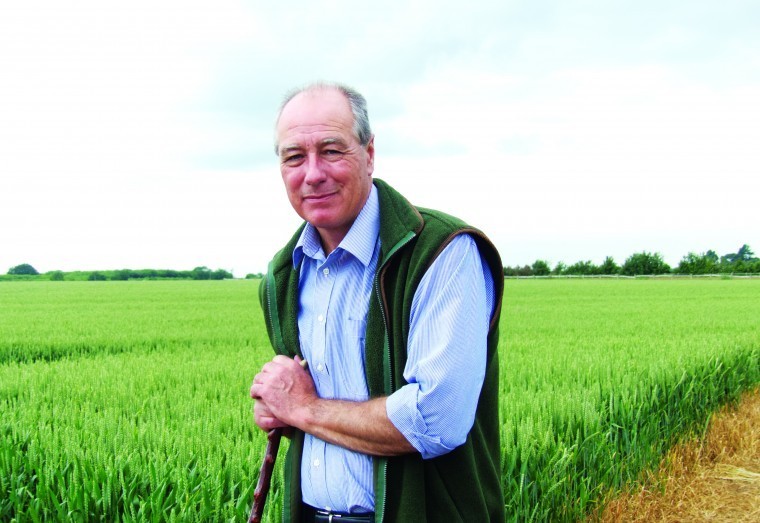It is still mild and crops continue to grow. We have had rain at sensible intervals and quantities to move crops on and more recently enough rain to begin to replenish reservoirs in Kent not that they were ever that low.
Looking in a bit more detail for late crops of oilseed rape they look very well as they have grown on. Early crops or even crops drilled at a normal time look like cabbage fields. They are unlikely to start stem extension before the spring for various agronomical reasons and no doubt the leaf growth will fall back and senesce leaving a rotting mulch around the growing point of the plants. There is not much to be done about that but it is never a good sight and crops do not grow away well from those circumstances in the spring. There is the added risk of diseases forming and spreading in the rotting vegetation. The concern with these huge canopies is the ability to achieve soil contact with residuals such as Kerb. We are using growth regulators now to open up the canopy to try and improve that situation. Frost would of course do the same job when it arrives and if it is before the end of January. We did spray off and re drill 300 acres of a Clearfield oilseed rape variety as I indicated last month. In any other year we would probably not have even had the choice due to the weather but luckily the wheat we have drilled is emerging well and economically that has to be the correct choice.
Wheat crops generally look fine with even stands across a wide variety of soils. Weed control looks good with the rain we have had arriving in a timely fashion providing ideal conditions for the residuals to work. The huge EFA catch crops I mentioned last month actually got sprayed off and drilled by a contractor and he did an excellent job. The standing vegetation even after the drill was quite something to observe and how the residual sprays will reach the ground to work in the conditions I really am not clear so I guess it will all be about the level of grassweed control if it happens at all. The cover crops we have also drilled even in his mild autumn have made slow growth and in respect of drilling spring barley I am sure that following glyphosate that is unlikely to be a challenge for our equipment. Whether we have got all the benefits out of the operation I am less sure as it looks as if a slightly earlier drilling of the cover crop mix would have provided more growth and organic matter. If we are seriously involved in this way forward growing the cover crops is going to take a level of management to achieve a balance of benefits without producing an enormous and unmanageable crop all without plant protection products in the relevant period. Or I guess we will be buying an additional drill.
I wish I had something positive to say about the politics of Brexit and how our industry may be operating in the years to come but today on 16 November absolutely anything could happen. I do know that European Union membership was the best trading relationship we can have with our nearest and largest economic trading partner and any other relationship will be less beneficial and our trading nation poorer. I get the sovereignty issues and they are powerful arguments but that does not excuse the way leaving has been portrayed by its advocates and only now are we seeing a clear picture of the damage that looms. Essentially any deal even if it is entering a vassal state form of limbo on the periphery of Europe will be less damaging economically than a hard Brexit and that absolutely applies to agriculture. There is still time for reconsideration but we have a government in disarray, riven by infighting and ignoring the opposition as well as some of their allies at their peril. If I was to summarise the dangers, it has to be trade first with labour a very close second as without the trade deal large swathes of the livestock industry will be in danger and without labour our horticultural sector is in real trouble. The third tier is the Agricultural Bill and what happens to farm support but that is down the road from the clear and immediate dangers and a transition whilst welcome really does look like kicking the can a bit further down that road.
Finally as we come to the end of another calendar year this will be my last article. I have always enjoyed writing them and as you all know I still find our whole industry fascinating. There are always new challenges from the weather to politics and despite my scepticism about Brexit there will be a future for agriculture. My articles have always been written as an arable farmer who enjoys representing our industry and I hope you have enjoyed reading them.




